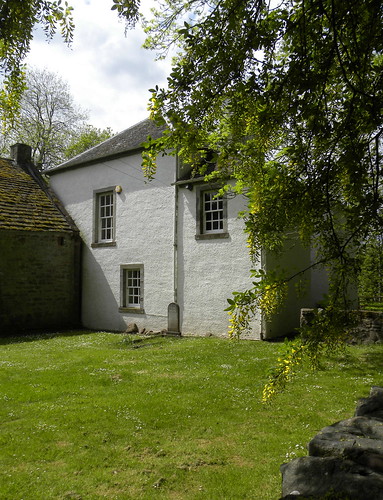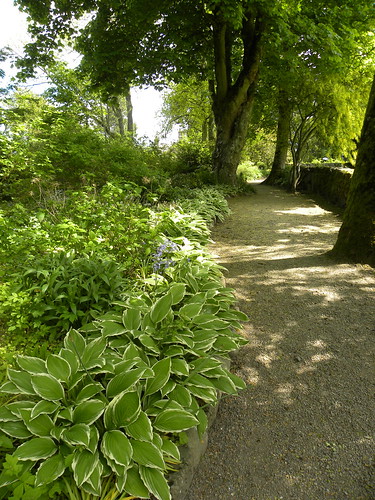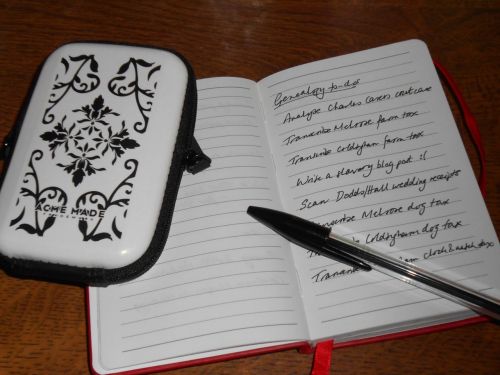I read a blog post today about self-funded PhDs, which was really interesting. It was written by someone who is working part-time to support their PhD, which I think, if I’ve read it correctly, is studied full-time. That takes a lot of guts. Much more common, certainly in the humanities, is self-funding for part-time PhD students.
I was a PhD student twice. Initially I was a full-time science PhD student when I fell ill in 1994, with what would turn out later – once eventually diagnosed – to be a very aggressive progressive neurological disease. I had to drop out, and although I considered self-funding it was not financially an option. There were other reasons that would have stopped me completing that PhD anyway.
Seven years later I started a self-funded humanities PhD, having picked up, in the meantime, a bachelors and masters degrees in history, both studied part-time. I expected to self-fund throughout. My husband was working, so I did not need to support myself financially. And I was studying the second PhD part-time, which made a big difference to the fees due, and the workload.
Much to my surprise I won funding from the second year onwards from AHRC who were willing – unlike my previous funding council EPSRC – to support part-time study. This was a particular surprise because I’d had to declare my past research council funding, but that was not counted against me. And, most significantly of all, when I applied, only 1 in 5 applicants to AHRC for PhD funding were successful. I was very very lucky.
There’s a perception among some in the sciences that self-funded PhD students are failures. It’s certainly true that – at least for full-timers – PhD funding is much easier to get in the sciences. There’s much more science money out there, people with lower quality earlier degrees can get funding for their PhDs. In humanities there is virtually no funding available for PhD students. Even what there is is only available for the very very best, and out of those only the very luckiest. This has led to a different economic situation among humanities PhD students, where it’s particularly common for people to self-fund part-time study alongside a full-time job. Or, more typically, a slightly less than full-time job, so they have the time available to put in the study required. Indeed in some humanities departments there are more part-time self-funded students like this than full-time funded ones.
What I’m less sure about is what the prospects for employment in academia are for people who self-funded throughout their PhDs. I could easily see some academics not being so impressed that the student, unsurprisingly, could not get some of the very limited funding. On the other side though I suspect that many academics would consider the bigger picture, and would assess for example the student’s publication record and teaching experience. For the latter part-timers can be at a disadvantage, with some departments more likely to offer teaching opportunities to full-time funded students, not least because they can be more visible on-campus. But if a part-time student is determined, and makes the right enquiries, they can get the good opportunities too.
Of course even funding can vary in how full it is. When I won my funding from AHRC part-time award holders just had their fees paid, and no allowance for living expenses. We also didn’t receive the same support for attending conferences and other things as full-timers. Over the following years the situation improved. I know, for example, that my original PhD supervisor, who later moved from Dundee to Oxford, was pushing for part-time PhD-ers to get the same support as full-timers from AHRC. And we eventually got it, including a living expenses allowance, which is only fair, given how often even part-time students have to reduce their working hours, and thus earning potential, to fit in a PhD.
What I’m sure about is that if I hadn’t won funding I would have carried on with my humanities PhD, part-time, self-funding, and I’m confident that I would have finished, and would have been doing exactly what I’m doing now, as an independent academic researcher, publishing my research in academic journals and doing new fun research. And I have the utmost respect for others doing their PhDs by self-funding, whether they are full-time students, or part-time ones. It can be difficult, but also rewarding.
Read Full Post »







